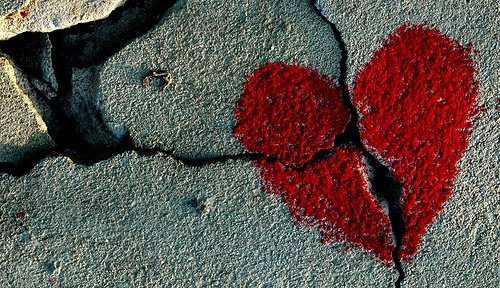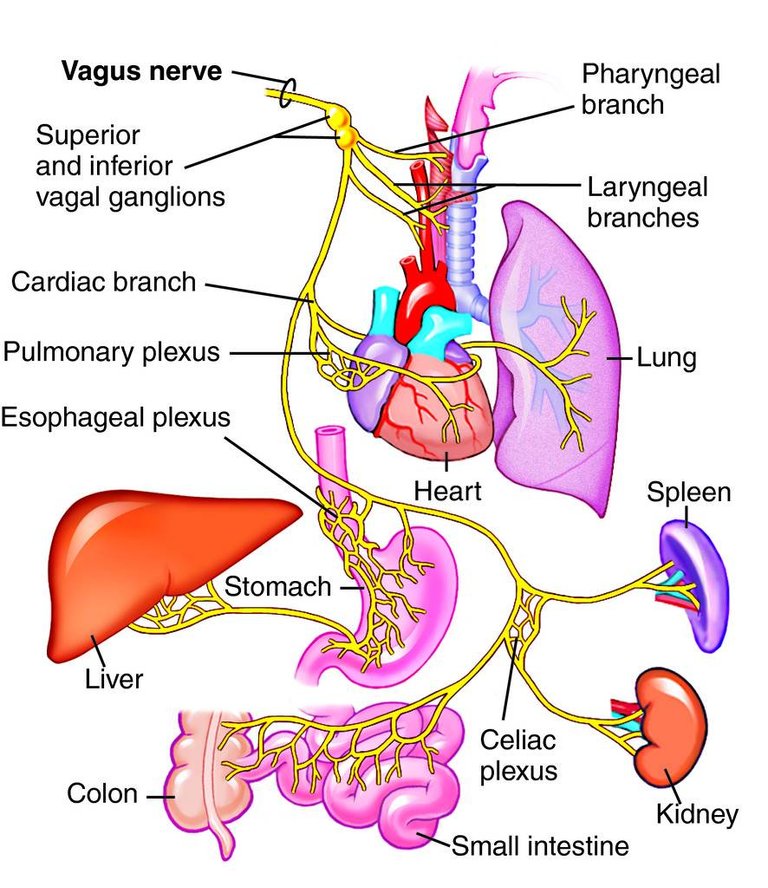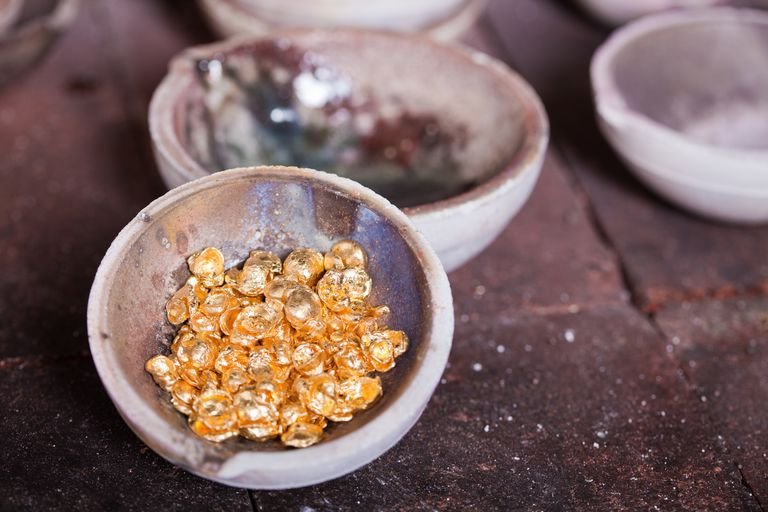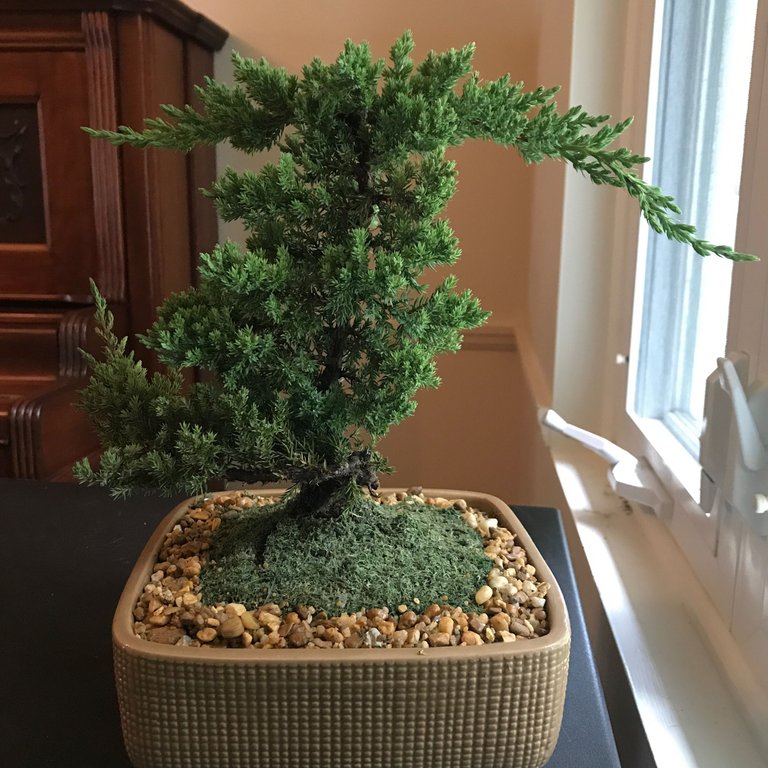They call it heartbreak for a reason—it's meant to save your life. The despair over the loss of a partner or romantic interest is an exquisite kind of torture. If there is ever any doubt that you are a thinking, feeling being, the exacting scalpel of heartbreak is there to fillet you open. Quite suddenly, you are reminded that you are very, very much alive, wandering through the world like an exposed nerve with all your most tender bits now situated on the outside.

(Graphics99.com)
The physiological response to emotional trauma can quite literally feel as though you've had the wind knocked out of you. When your heart capsizes, and your gut mutinies, and the pain becomes strong enough to take you to the floor, you can blame (or thank later) your "wandering nerve." It's the only nerve in a bundle of nerves that transmits information from the brain to the body. The technical term is the vagus nerve and it's routed from your brain stem down through your neck, chest, and abdomen.
When the limbic system (the region of the brain responsible for storing feelings and memories) registers an emotion, it lights up the anterior cingulate cortex which in turn stimulates the vagus nerve. Overstimulation forces the body to react as though its survival is being threatened. In essence, it's our brain's way of disrupting regularly scheduled programming by shouting: DON'T EVER DO THAT AGAIN. It's supposed to hurt, otherwise you wouldn't notice. And if it stings badly enough, the idea is that you won't repeat the procedure.

(AutismCoach.com)
When it comes to matters of the heart, I know a lot of people, present company included, who don't or won't take the hint. I've joked in the past that artists treat heartbreak like going to the store, "Yeah, I'm gonna go pick up some eggs today, butter, a loaf of heartbreak...." At this point, I'm so acquainted with the sensation, I have developed a formula for repairing the damage which usually involves a new tattoo, long bouts of isolation, drawing, writing letters I will never send, bingeing on episodes of Star Trek, and losing myself in work and talks by thinkers like Alan Watts who encourage me to let go of the attachment to a particular outcome.
Carl Jung called navigating this inner-terrain, the 'Dark Night of the Soul' (DNOTS). And the effort to level your vibration up from anguish, he called 'shadow work.' In other words, you work with heartbreak to save your own life. Should the conditions again arrive that created it in the first place, technically, you should be able to recognize them post-heartbreak and avoid another similar encounter. But what happens if you've never learned how to disassociate love from pain?
I suppose that's why Jung was so interested in the alchemists. It didn't matter that these Medieval chemists never actually figured out how to turn lead into gold, they kept trying. There were always rumors circulating that someone a world away had pulled it off. And that was enough to keep them going.
The DNOTS originates with Jung's assessment of the first stage of alchemy: 'The Nigredo.' Alchemists also called it the 'putrification' stage or the 'blackening' stage. So emo, those alchemists. At every stage in alchemy, of which there are four, fire is used, but this first stage required the alchemist to scorch their base metal and other ingredients to a uniform black. Because fire purifies, this was how they prepared the elements to transform. It wasn't exactly a pretty stage, but it was necessary if there was any hope for gold.

(Thoughtco.com)
What if instead of looking at the DNOTS as something to be avoided altogether, we view it as an alchemical process? What if instead of bowing before the pain of disappointment with thoughts of: 'I didn't manage to transmute the lead in my life this time, so I may as well never try again,' we focus more on tweaking the elements we're already working with, so that we get the measurement right next time? You can't have creation without destruction. Any sense of abandonment, grief, rejection, or thought that this was your last shot at love can be rectified, but it takes acceptance first and action sooner later. Because love, after all, is a verb.
In other words, once you pick yourself up from the floor, and you will, instead of seeing the failure at a connection, you could look at it as though you’ve been left with the gift of choice. You can either focus on creating the conditions in your life that are more closely aligned with what you actually want for who you are at that moment newly reborn from the ashes of despair, or you can dwell on what you don’t have, what you lost, or what you feel that other person robbed from you. But, hang on. What if heartbreak is the barometer by which you measure your success? In other words, the more keenly you feel the heartbreak, the closer you are to actually creating what you want. It was a failed experiment only if you don’t examine it the way an alchemist might, learn from the results, then tweak the conditions surrounding the connection, and one day, try again. But maybe you don't start with romantic love. Maybe that's not the goal right off the bat. What if you lower the bar of your expectations for a moment and start off slow by extending that love somewhere else? I always start over by acquiring a new plant. This last time, I knew I was closer to gold because my plant-rearing skills have leveled-up. I felt confident enough to splurge on a bonsai. Her name is Fergie.

You know what else is good to admit after you've had a good think? Thankfully, you found out NOW that the person who walked away or from whom you walked away, is no longer a match for the connection they helped to create. And by doing the necessary shadow work, you are making room for someone who IS. It's just as important to know what you don't want as it is to know what you do. And if you don't yet know what you want, the physical indicator of heartbreak is there to let you know what no longer serves your well-being. Tina Knowles said, "If you're going through it, just know it's called ‘going through it.’ You're not gonna get stuck there, you're not gonna die. You're gonna survive." Every time you endure the gut-punch of heartbreak, every time you pick yourself up afterward, and every time you allow the wounds to stitch themselves back together, you’re becoming increasingly aware of what will lead you closer to gold. (See what I did there?)
Did you know that in 1972, a group of Soviet physicists accidentally figured out how to transmute lead into gold while working on something else? And in 1982, a chemist named Glenn Seaborg did the same? Chemists have since determined that it’s possible to extract gold from lead because lead already contains trace minerals of gold. In a complete over-simplification of the process, you basically just have to go in and get it. The alchemists suspected this all along. They simply did not have access to the equipment or information to pull it off. It didn’t mean never, it just meant not right now. But that’s the beautiful thing about humans—we don’t let something like disappointment keep us from trying again.
Listen. I know it hurts. I do. I'm right there in the trenches with you. However, you wouldn't know what still needs healing in you unless something trips the wire. Heartbreak turns a floodlight on the areas of yourself that might still be hurting and untended from as far back as childhood. The mending process is most effective if we can come back to life with fresh eyes every time. In other words, instead of looking for the outward manifestation of gold, we turn our gaze inward, to look for the gold in the lead. And what we feel as we head towards a space of appreciation and gratitude for what we now know about life and love can point the way. In other words, think of yourself as an alchemist of the heart. You may not have transmuted all of your pain into gold just yet, and certainly, the letdowns may slow you down along the way, but don’t stop yourself from trying. You’ll get closer every time.